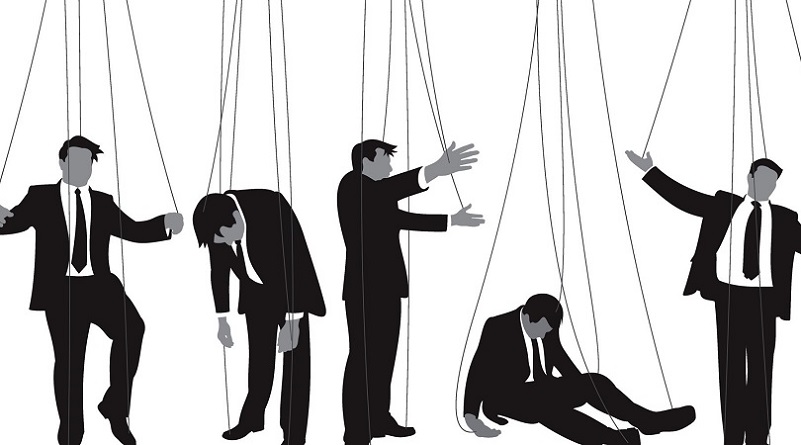Government Empowers the Institute of Regional Governor Instead of the Local Self-Governance
July 31, 2018

Lado Bitchashvili, Shida Kartli
“We need new approaches to the coordination between the regional and the central authority; in this light, the regional governors are leaving their positions,” PM Mamuka Bakhtadze announced his human resource policy after being appointed to the position of the prime minister. Shida Kartli regional governor Akaki Matchutadze is one of those five governors, who quitted their positions throughout the country. Four months ago, the former PM Kvirikashvili shifted the regional governors in Shida Kartli and Samtskhe-Javakheti regions and Matchutadze was moved from Samtskhe-Javakheti to Shida Kartli, and Kakha Samkharadze - from Shida Kartli region to Samtskhe-Javakheti.
The former head of the government Giorgi Kvirikashvili appointed Matchutadze to the position of the Shida Kartli regional governor on April 2; on July 26, the new Prime Minister Mamuka Bakhtadze resigned him. In his first interview Matchutadze said he did not know the region well and had only once visited it. He met local media twice – once when appointed and second – when dismissed.
“My activities in the region started and finished with the communication with media. Infrastructural projects have launched and will continue,” Akaki Matchutadze said on July 26, one hour after the MP Bakhtadze made statement about dismissal of the regional governors.
Matchutadze did not evaluate the decision of the PM. Reportedly, he was a team member of the former prime minister and representatives of the local government associated his resignation with it.
Before making the statement about resignation of the regional governors, Mamuka Bakhtadze spoke about the empowerment of the regional governor’s institute.
“We have such lawyers of bureaucracy that it cannot do any good for the population. I think this institute is necessary but needs empowerment,” the head of the government said.
Tamar Tedliashvili, who was member of the Gori city assembly in 2012-2017, said the policy of the PM – to increase power of the regional governors – will further weaken the local self-governance.
“If regional governors informally interfered in the activities of local governments before, now they will have formal and legal rights to do that. Increasing the authority and empowerment of the regional governors automatically result into weak self-government. When I was the member of the assembly, the regional governor often interfered in our activities and it will continue now. I hoped PM Bakhtadze would rather focus on the implementation of 2018-2025 Action Plan, according to which the cities shall get the seized status of self-governing cities,” Tamar Tedliashvili said.
Civil activist Arina Tavakarashvili said the government made first mistake when they seized status of self-governing cities from seven cities and the second mistake is done now, when they plan to strengthen the institute of the regional governor, which will proportionally cause weakening of the local self-governance.
“Empowerment of the regional governor’s institute contains risks. The regional governor, who will be appointed by the central authority, will have more power than the elected mayor that is far from the democracy and it cannot develop self-governance,” Arina Tavakarashvili said.
“Sozar Subari will be head of the regional management department in the Administration of the Government of Georgia,” PM Mamuka Bakhtadze said at the briefing before the government session on July 26.
With Bakhtadze’s initiative, the component of the regional management was separated from the Ministry of Infrastructure and was subordinated to the Government of Georgia. The former Minister of IDPs Sozar Subari will be in charge of this division.
The same department was functioning in the GoG during Shevardnadze’s presidency and it was in charge of appointing regional and district governors. Today, when the population directly elects the mayor, the opposition has questions with regard to the necessity of this department.
“It is a step back; they intensively speak about the Gori and Khashuri mayors that they are going to quit positions early. I do not exclude that they are under oppression of the central authority. The department, where Sozar Subari will be the leader, will be busy with similar activities; if the central authority will not like the elected mayors, they will be told to go,” UNM member Ramaz Chutkerashvili said.
Representatives of the ruling party state that the initiative of the PM aims to promote effective governance in the regions.
“The Prime Minister announced that one of the key goals of the government is to make the regional development more dynamic, to encourage more economic activities, to create advantageous conditions for small and medium entrepreneurship, to encourage effective decisions on the ground and to enable citizens to feel the positive results sooner,” the member of the Gori municipality assembly from the GD Mamuka Paniashvili said.
Although the PM stated that he would appoint the new governors in near future, five days have passed but the Shida Kartli region does not have governor yet.
News
December 13, 2023
Ethnic minorities outside the peace dialogue
November 6, 2023
‘Peace’ agenda of political parties
Popular
Articles
February 13, 2024



